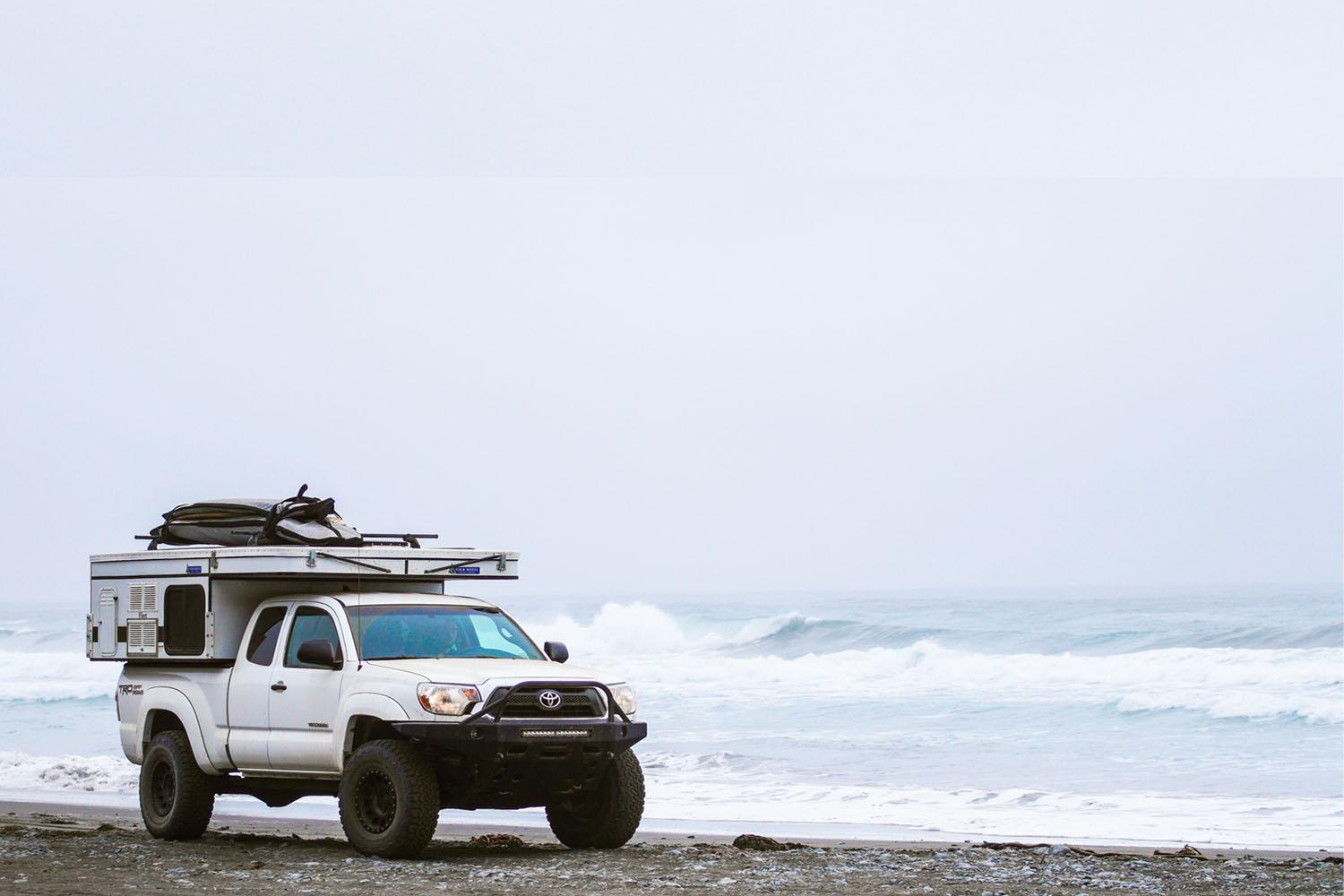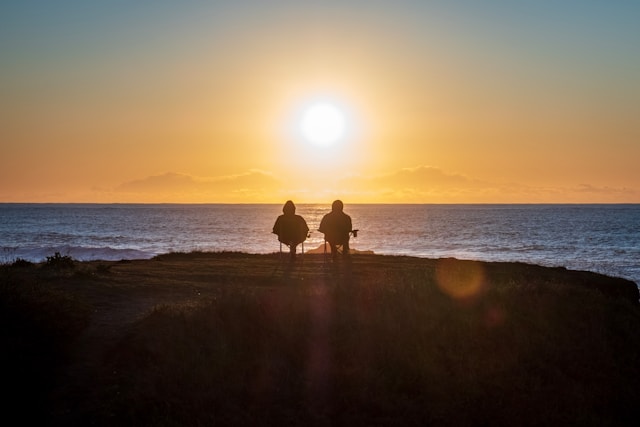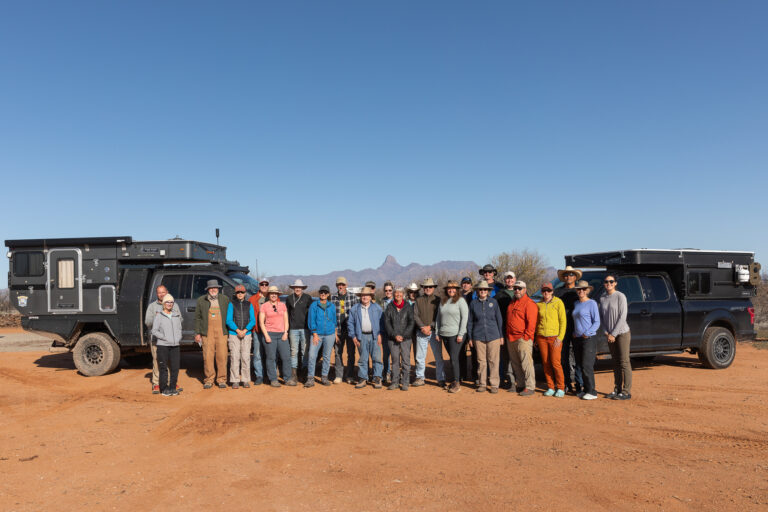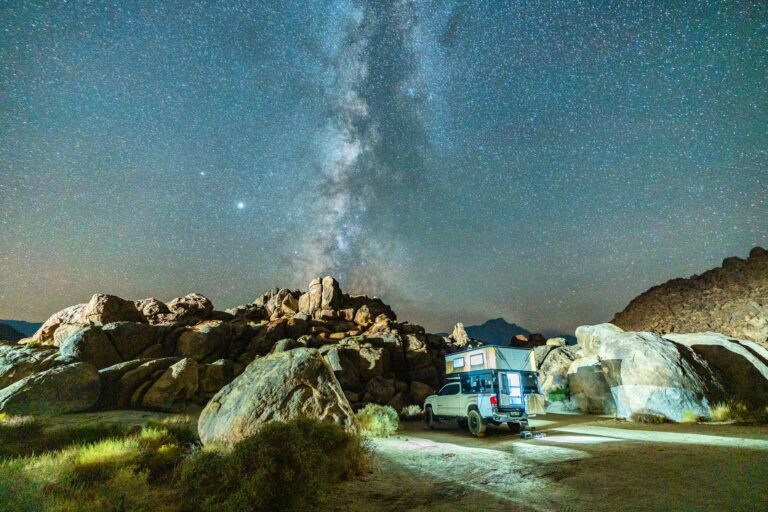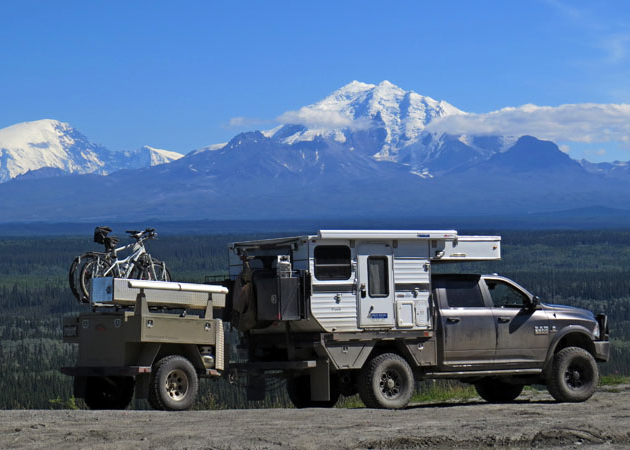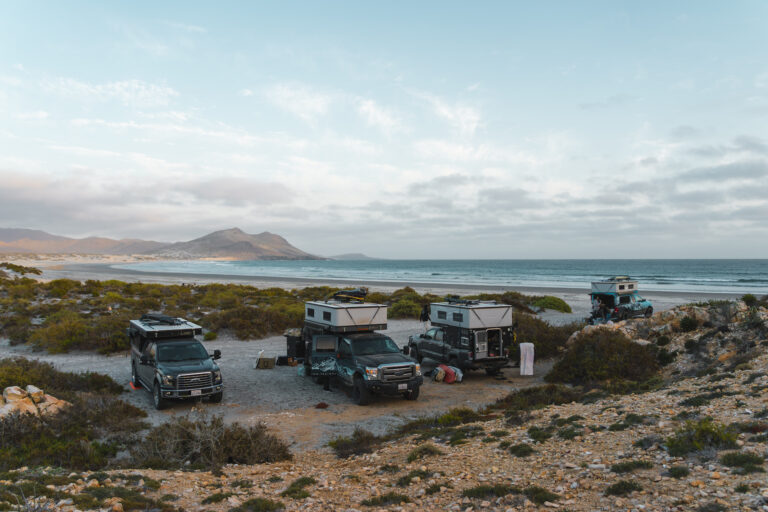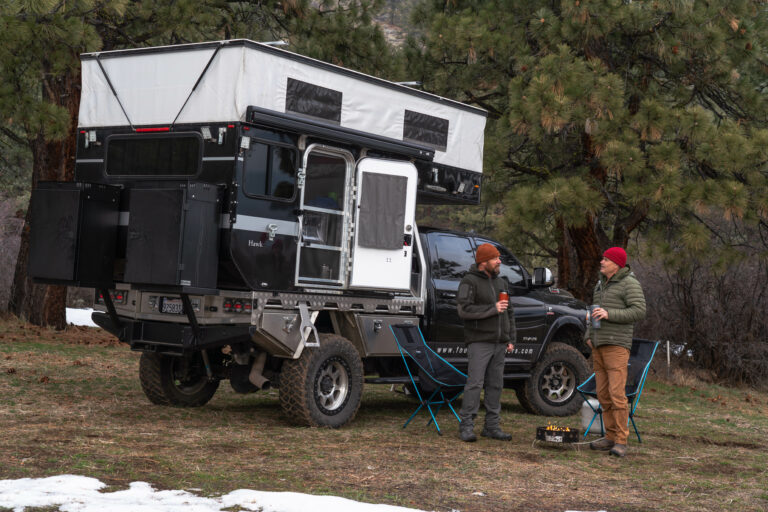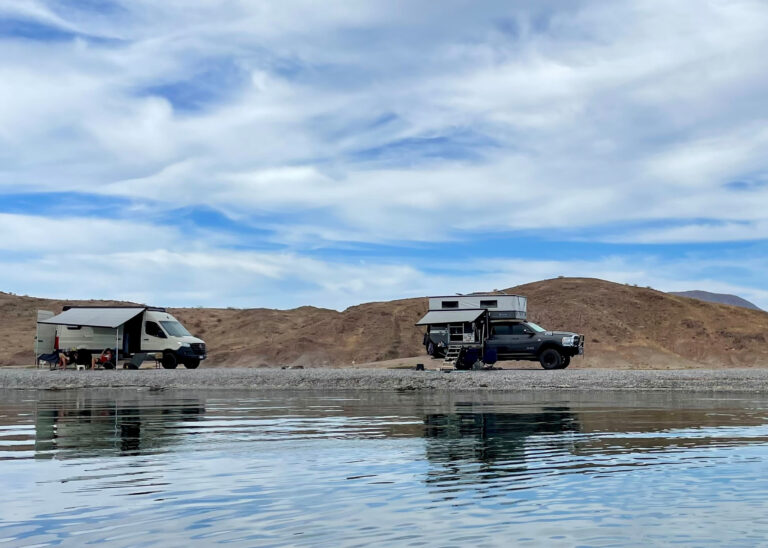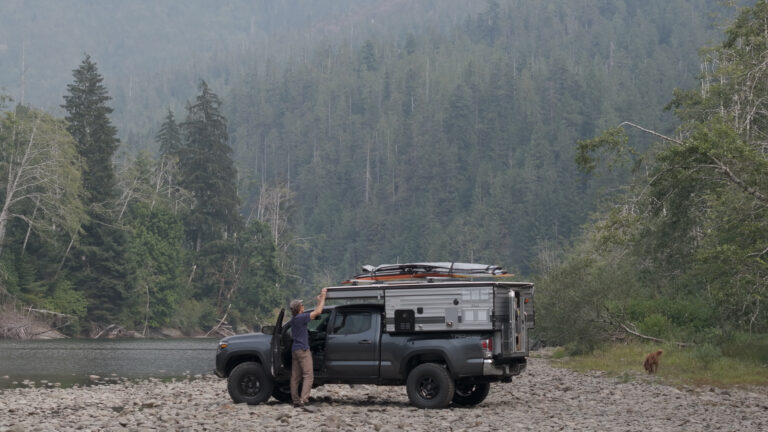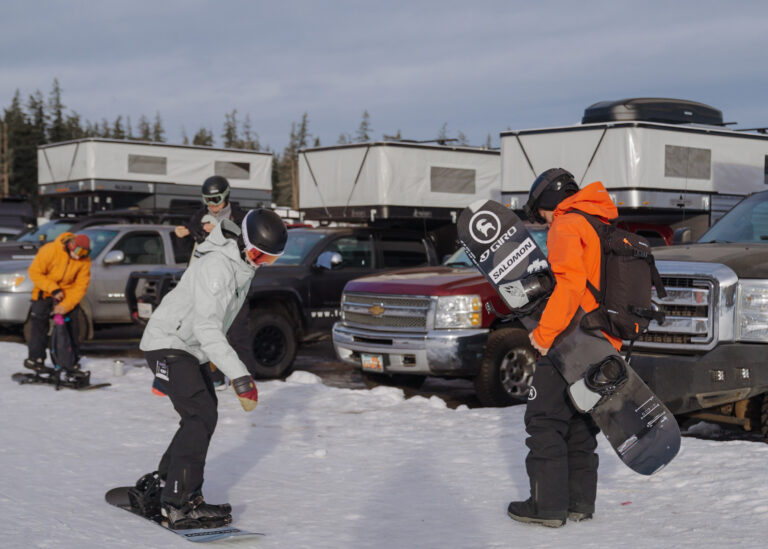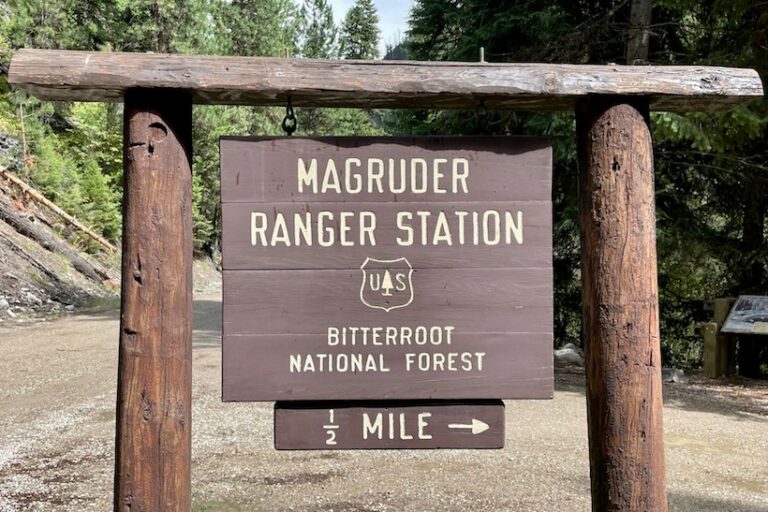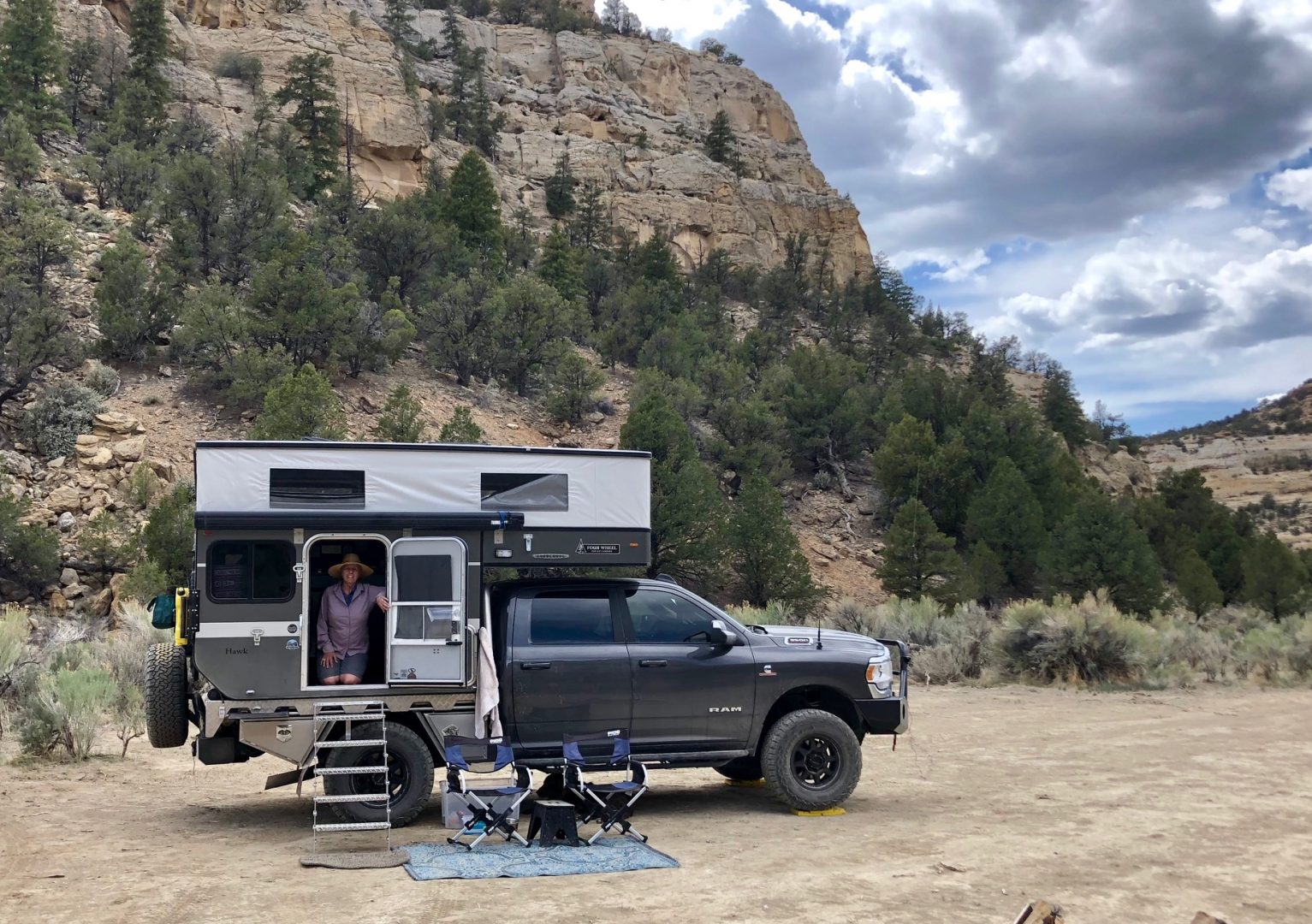
Safety Tips When Camping in Bear Country
Bears are wonderful creatures, but they are also mighty creatures. Camping in bear country is just part of life, and you’ll most likely experience it at least once, as at least 40 U.S. states are home to black bears.
Before setting up camp and grilling steaks for dinner, it’s important to understand bear safety, such as food storage, leave no trace principles, and the importance of carrying bear spray.
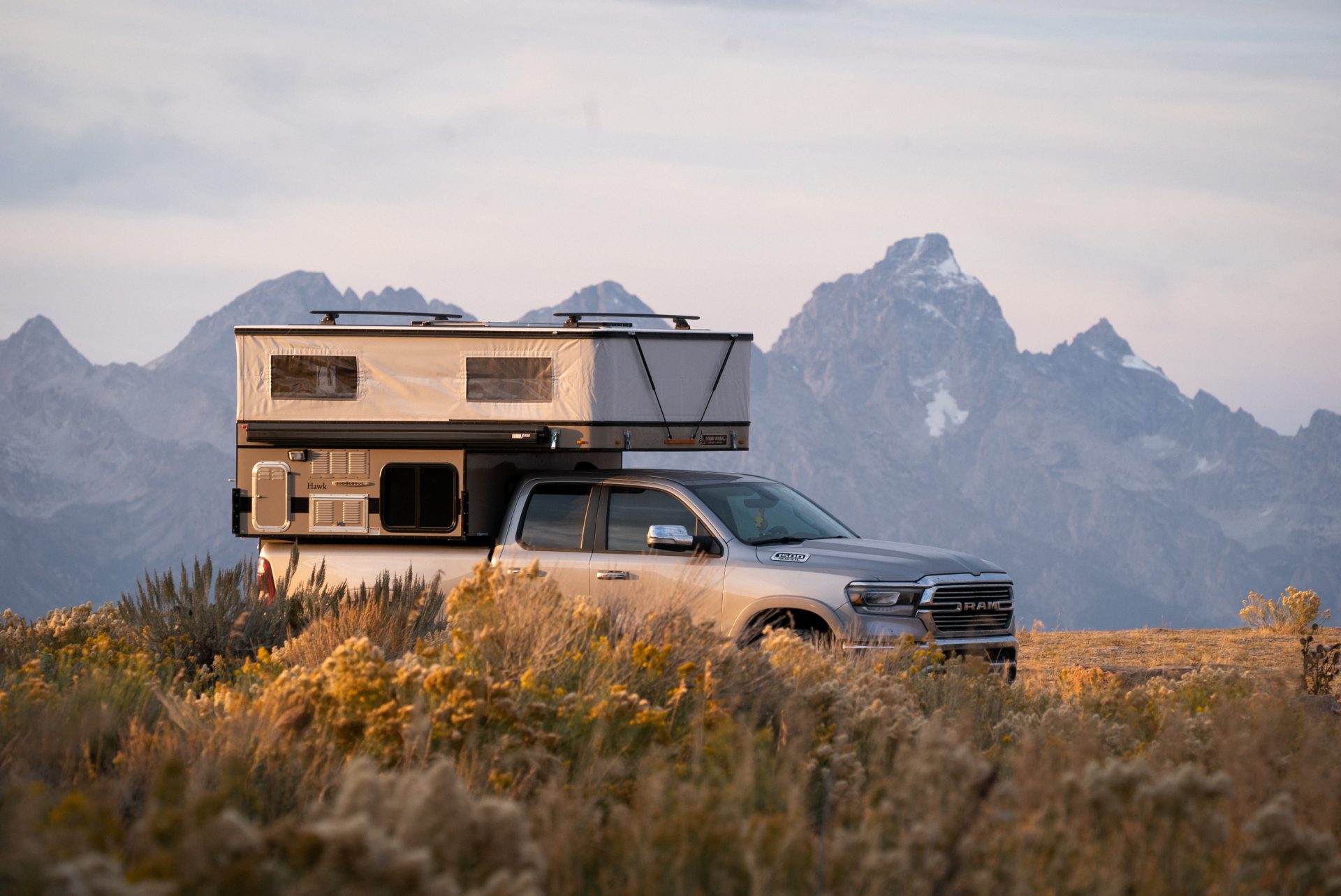
Safety Tips When Camping in Bear Country
Understanding the Difference: Black Bears vs. Brown Bears
Black Bears: Black bears are the most common species of bear in North America. Despite their name, their fur color can vary from black to brown, cinnamon, or even blonde, meaning they are often mistaken for grizzly bears. They are generally smaller in size, with an average weight of 125-500 pounds. Black bears have a varied diet, consisting of berries, nuts, grasses, insects, and occasionally scavenged carrion. They are common throughout the entire United States, from Florida to Maine to California.
Brown Bears: Brown bears, also known as grizzlies, are larger and more powerful than black bears. They have distinct shoulder humps, a concave face profile, and longer, curved claws. Brown bears are primarily found in the western regions of North America, including Alaska, parts of Canada, and a few states such as Montana, Wyoming, and northern Idaho. That means they only exist in 4 U.S. states, which should hopefully ease some nervousness! And although large and daunting, brown bears rarely seek out conflict with humans. One of our FWC owners lives in the Yellowstone Ecosystem, home to the highest concentration of grizzly bears outside of Alaska, and even she says encounters are rare (fun fact: you’re more likely to die falling into a hot spring than of a bear attack in Yellowstone). But precautions in Grizzly are no joke.
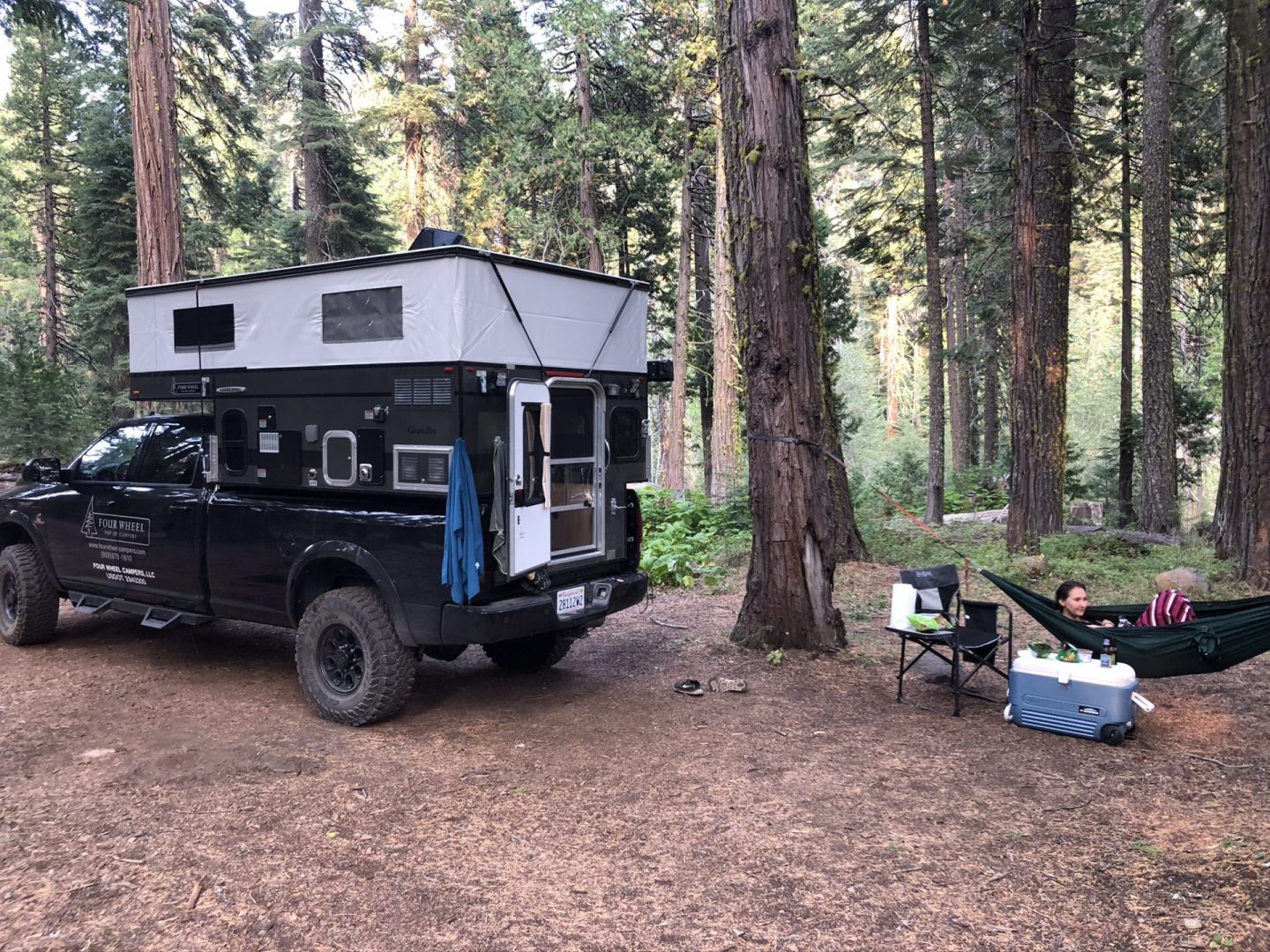
Essential Safety Measures:
- Food Storage: Proper food storage is crucial in bear country. Store all food, trash, and scented items securely in bear-resistant containers or bear lockers. Hang food at least 10 feet off the ground and 4 feet from the tree trunk if bear-resistant containers are not available. Keeping a clean campsite minimizes the chances of attracting bears. Even something as little as a toothpaste container can attract a bear!
- Leave No Trace: Practicing leave no trace principles is not only respectful to nature but also helps prevent bear encounters. Pack out all trash, dispose of waste properly, and avoid leaving any food scraps or leftovers behind. This ensures that bears do not become habituated to human food sources, reducing potential conflicts.
- Bear Spray: Carrying bear spray is an essential safety precaution when camping in bear country. Familiarize yourself with how to properly use bear spray, and have it easily accessible in case of an encounter. Be sure to carry it in a holster or a belt, as you may need to deploy it quickly.
- Campsite Selection: Choose your campsite wisely. Look for open areas with good visibility and away from natural bear attractants like berry patches or fish-bearing streams. Most importantly, avoid camping near game trails or carcasses, as these attract bears. Many areas with carcasses are closed off because of the increased risks of bears. Especially in grizzly country, notify if you come across a carcass (such as elk or moose) that has not been closed off to visitors. Also, research campsites in grizzly country before arriving. Campgrounds in active grizzly areas may not allow soft-shell camping setups, such as tents.
- Bear Awareness: Educate yourself about bear behavior, signs of bear activity, and what to do in an encounter. Be alert while hiking or exploring the surroundings, making noise to alert bears of your presence. Travel in groups whenever possible, as bears are less likely to approach larger groups. Nearly all bear attacks occur during a surprise encounter or a mother protecting her cubs. If out in bear country, make noise often to reduce the risk of a surprise encounter.
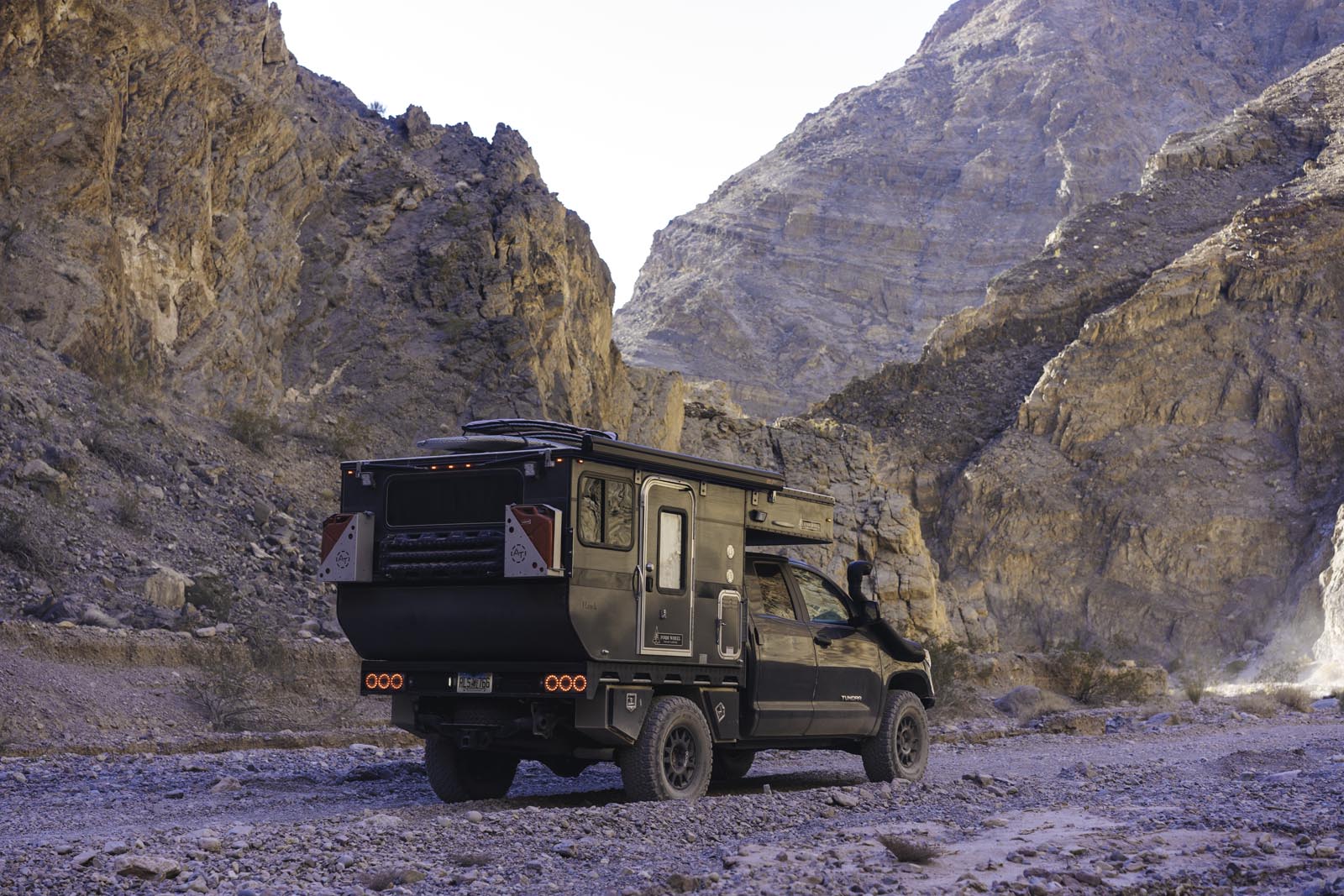
Remember, bears are friends! And encounters are rare. But respecting their territory is important. Camping in bear country offers incredible opportunities to connect with nature, but it’s essential to prioritize safety. Understanding the differences between black bears and brown bears, their respective habitats, and implementing key safety measures such as proper food storage, leave no trace practices, and carrying bear spray can significantly reduce the risk of bear encounters. Remember, respect for wildlife and responsible camping practices ensure that both humans and bears can coexist harmoniously in their natural habitats.
Want more camping tips? Visit our camping tips section on our blog!
Ready to upgrade your camping rig? Shop our truck campers!
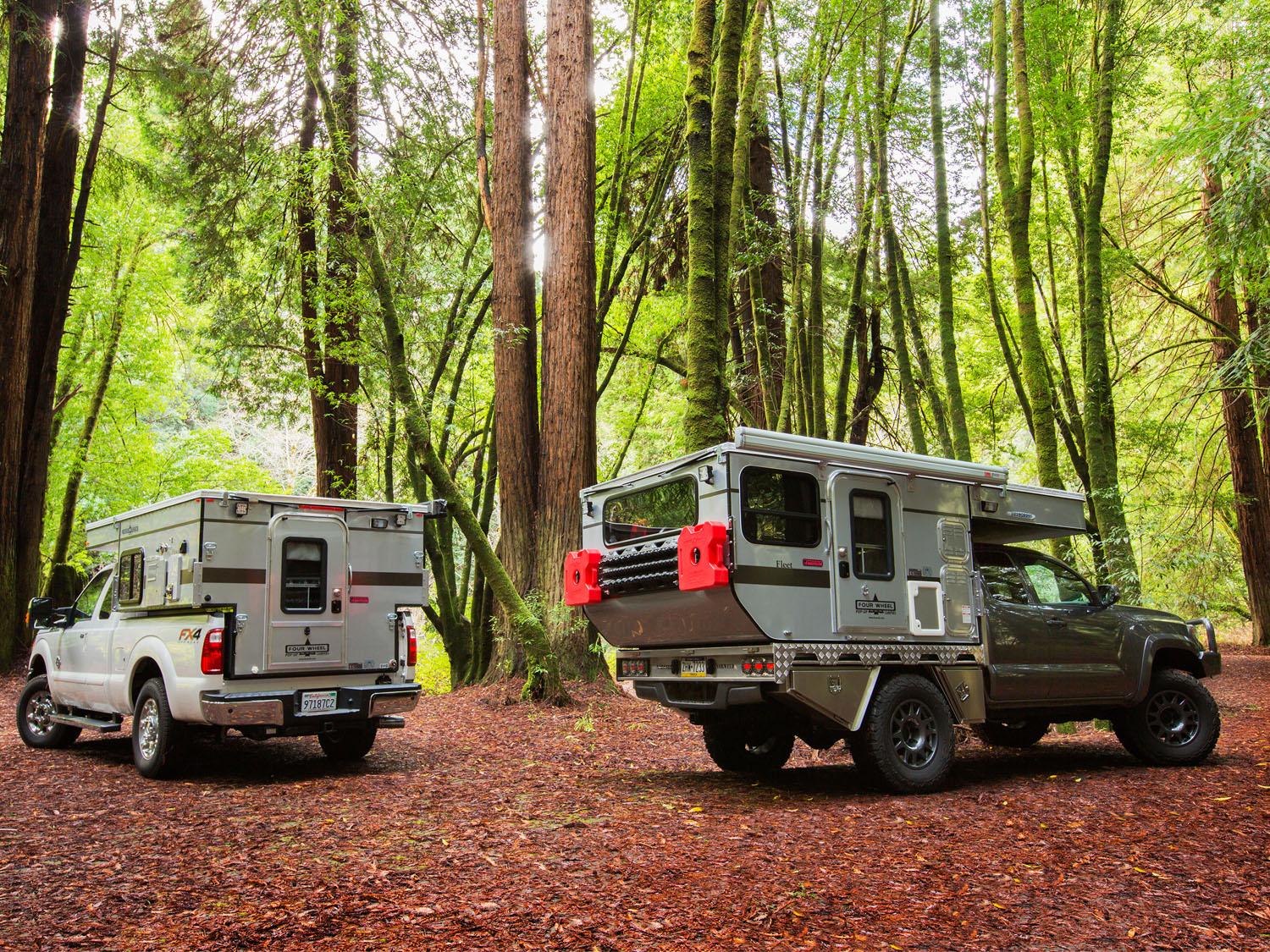
Related News
-
Best Surf Spots in America
We’ve seen more and more surfers come up and join the Four Wheel Camper family. I mean, our slide-in campers DO make a ...
Read More -
Reasons You’ll Regret an RV in Retirement
Congratulations, retiree! Stepping into retirement is a big deal – the world is at your fingertips! You want to ...
Read More -
Four Wheel Campers Hosts Third Annual Volunteer Event in Southern Arizona
In March 2024, Four Wheel Campers returned to the Sonoran Desert for our third annual volunteer event with Friends of Buenos ...
Read More -
Best Places to Stargaze in the United States
The moment your pop up truck camper is set up, the fire is lit, and the stars arrive, is one of the best feelings, especially ...
Read More -
The Perfect Campsite Challenge
Read the Full Article
Read More -
Lightweight Pop-Up Truck Campers: Hub-and-Spoke RVing with Boundless Adventures
Read the Full Article
Read More -
8 Breweries You Can Camp At With Your Four Wheel Camper
There’s nothing like a cold brew after a long day of travel. Better yet, there is nothing better than a cold hard brew at a ...
Read More -
Veteran and his Artistic, Off-Grid Lifestyle
We know our customers are special. Four Wheel Camper customers not only appreciate quality, efficiency, and great ...
Read More -
FWC Customer Pens Emotional Tribute
We know our customers are special. Four Wheel Camper customers not only appreciate quality, efficiency, and great ...
Read More -
7 Tips for Living on The Road Full Time From Industry Experts
Sometimes it’s the little details that get overlooked when prepping to live on the road full-time in your truck camper rig or ...
Read More -
Ski Resorts Where You Can Winter Camp in the Parking Lot
Embarking on a winter camping adventure offers unparalleled satisfaction, especially when you wake up snug and on-site in ...
Read More -
A Magruder Corridor Trail Adventure
Read the Full Article
Read More

